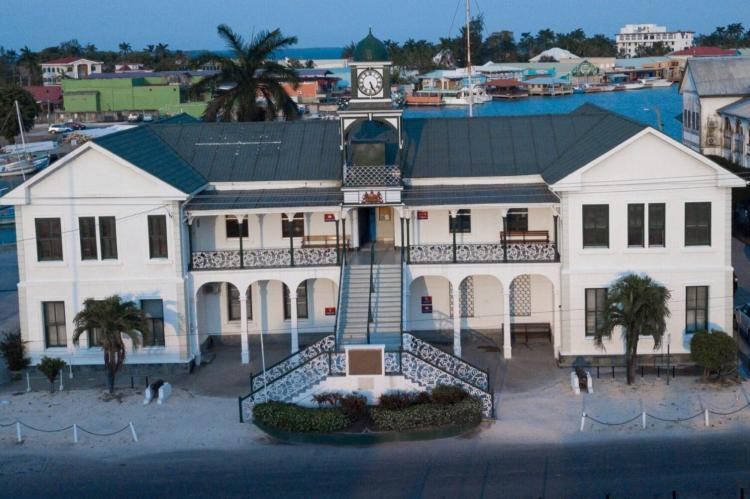Belize's Judiciary in Crisis: Too Many Foreign Judges, Only One Belizean
By: Omar Silva, Editor National Perspective Belize
Belize City: Thursday, 25th January 2024
In a scathing indictment of the state of Belize's judiciary, the National Trade Union Congress of Belize (NTUCB) has raised alarming concerns about the composition of the High Court bench. At present, out of eighteen judges, only one is Belizean, Justice Michelle Arana, while the remaining seventeen judges are foreigners. This stark reality has ignited a firestorm of criticism against the government and the Judicial and Legal Services Commission (JLSC), casting a shadow over the nation's commitment to sovereignty and self-governance.
In a recent statement, the NTUCB declared that this situation symbolizes a disheartening regression for Belize, echoing echoes of the colonial era. The organization pointed out the irony that foreign judges, who lack cultural references and ties to Belizean society, occupy the highest offices of the land, responsible for administering justice to its citizens. President Luke Martinez of NTUCB minced no words when he remarked, "We cannot hand over an essential arm of our government, the judiciary, to foreign nationals. This is a betrayal of our commitments under the Treaty of Chaguaramas, the CSME, and even the Commonwealth."
Former Attorney General Michael Peyrefitte from the UDP also expressed his dismay, drawing comparisons with other Caribbean nations like Jamaica, where native judges exclusively preside over their High Court. He emphasized the importance of Belizeans filling senior positions within the government, insisting that the economic benefits should remain within the country. Peyrefitte stated, "I share the view of the NTUCB. I am concerned that the bench seems to be occupied mostly, if not all, by foreigners at this point."
The NTUCB's press release went further to express sorrow at the inability of the JLSC to find qualified Belizeans to administer justice. They highlighted the alarming fact that out of 18 senior court judges, only one was born in Belize, including the Chief Justice. This representation is a stain on Belize's sovereignty, and it paints a disturbing picture of dependency on foreigners for justice.
The NTUCB contended that the appointment of all twelve High Court Judges from foreign countries should have been a temporary measure, part of a broader strategy to develop local legal talent and eventually fill these posts with Belizeans. They deemed the situation insulting, arguing that there are competent Belizean legal professionals who meet the mandatory qualifications as per the Belize Constitution.
The NTUCB further highlighted the dire situation in the Court of Appeal, where only one Belizean-born judge serves. This constitutional issue demands immediate attention and reform.
The NTUCB reminded the JLSC of its constitutional responsibility for the management of judicial and legal officers' appointments, promotions, and conditions of service. They suggested that the fault lies with the JLSC if there are no competent Belizean attorneys available for judicial roles.
In a bold move, the NTUCB recommended that the Constitution should be amended to include criteria for appointing judges similar to those for elected representatives in the House of Representatives and the Senate. This would ensure a more transparent and accountable judicial selection process.
Despite these concerning developments, justice in Belize remains painfully slow. Suspected offenders languish in remand for years, only to be released on the day of trial due to lack of evidence or changing testimonies. The Belizean people deserve better.
In conclusion, the state of Belize's judiciary is at a critical juncture, with an overwhelming presence of foreign judges at the highest levels. The NTUCB's call for reform and a return to a more balanced and Belizean-centric judiciary is not just a cry for justice; it's a demand for the preservation of Belizean sovereignty and the principles of self-governance. The time for change is now.
- Log in to post comments

